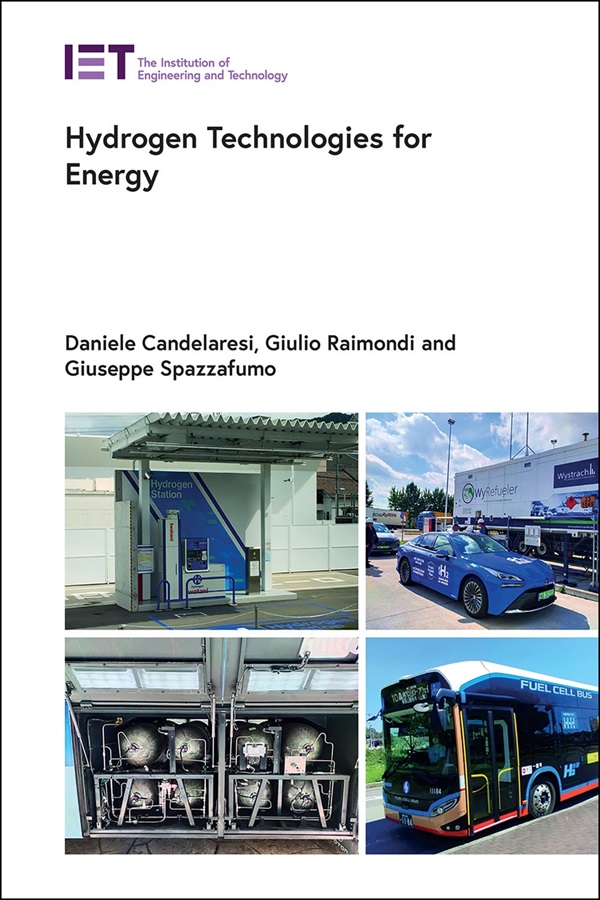- Agricultural Engineering and Technology
- Applied Physics
- Built Environment
- Computing and Networks
- Control, Robotics and Sensors
- Electrical Regulations
- Electromagnetics and Radar
- Energy Engineering
- Healthcare Technologies
- History and Management of Technology
- IET Codes and Guidance
- Manufacturing
- Materials, Circuits and Devices
- Model Forms
- Security
- Telecommunications
- Transportation

Hydrogen Technologies for Energy
by Daniele Candelaresi, Giulio Raimondi, Giuseppe Spazzafumo
Hydrogen is a key vector towards a future sector-coupled and more integrated energy system. Hydrogen can be used as long term, even seasonal, storage for electricity itself, as well as a fuel in the transport and residential sectors, and as a feedstock for the chemical industries.
There are several competing, or complementary, technologies for generating hydrogen from various sources, and then to store it, to transport it, and to use it in various sectors. This book offers an overview of the currently available technologies, taking into account their principles, advantages and shortcomings, and so enabling readers to make informed choices on the best options for given conditions.
Chapters cover hydrogen characteristics, production of hydrogen, storage and distribution, and hydrogen energy utilisation and applications in different sectors. The work conveys the entire chain of energy use of hydrogen, from production to final use. Chemistry and materials science are covered, along with efficiency considerations.
Hydrogen Technologies for Energy presents a concise but thorough overview for researchers in universities and in industry who are involved in hydrogen technology and energy-related topics. The book is also a useful resource for graduate students interested in a future in this field of research and development.
About the Author
Daniele Candelaresi is the chief technology officer (CTO) at EnTraT (Energy Transition Team), an academic spin-off focused on hydrogen energy systems and life cycle sustainability assessments for energy projects. He obtained his PhD working on life cycle assessment of hydrogen energy systems, carbon neutral fuels and sustainable mobility.
Giulio Raimondi is a freelance engineer with Innoind, a consulting brand based in Italy. He provides technical and strategic support for product and process development, as well as for the creation of hydrogen supply chains and for energy efficiency. He obtained his PhD working on development of local hydrogen production and use chains.
Giuseppe Spazzafumo is an associate professor at the University of Cassino and Southern Lazio, Italy. His main research field is hydrogen energy systems. He serves as a member of the IAHE (International Association for Hydrogen Energy) Board of Directors since 1999 and as coordinator of HYPOTHESIS (HYdrogen POwer THeoretical and Engineering Solution International Symposium) series.
Publication Year: 2024
Pages: 341
ISBN-13: 978-1-83953-445-4
Format: HBK
